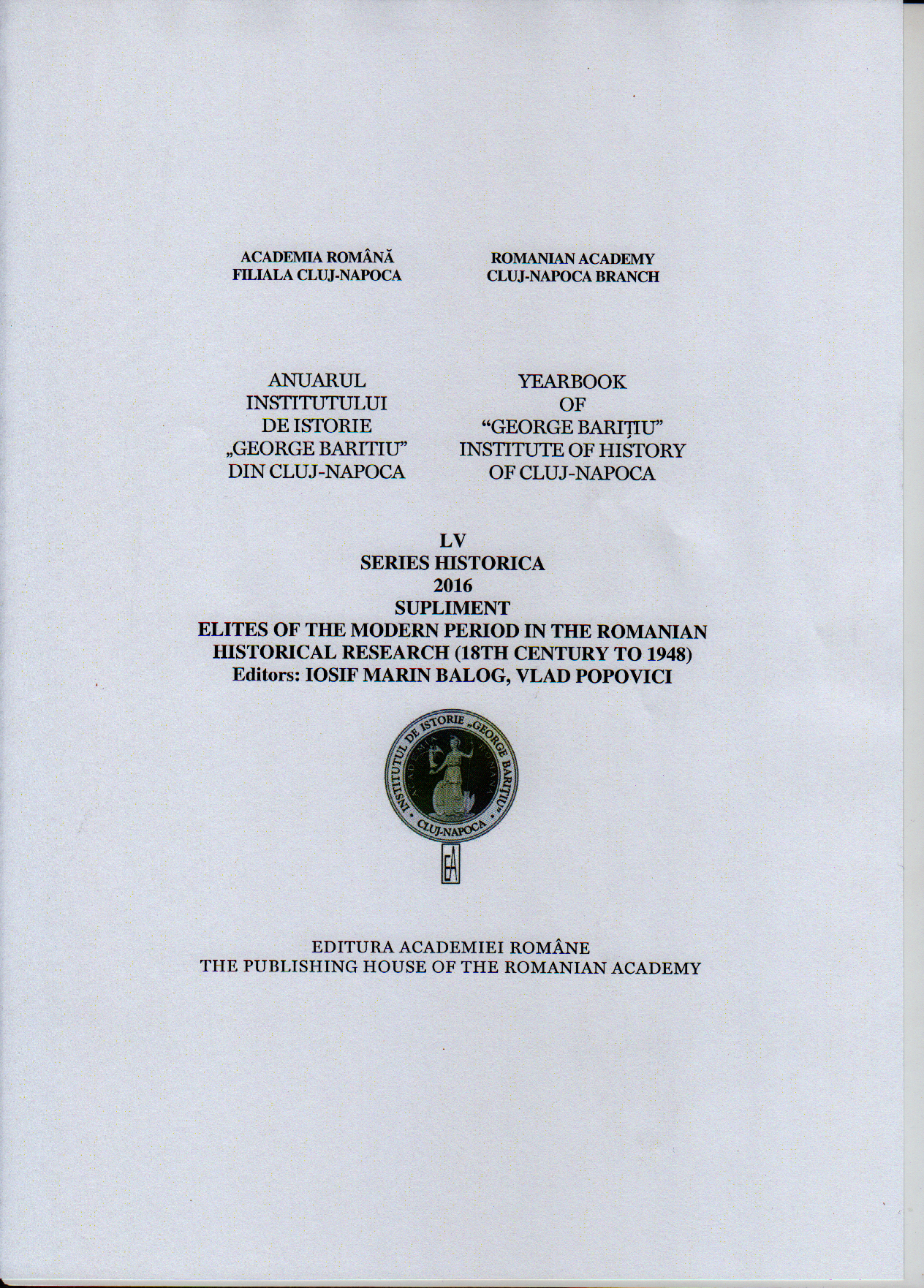Elita românilor din Transilvania la 1918:
Educație, proiecte și opțiuni politice
The Elite of the Romanians from Transylvania in 1918:
Education, Projects and Political Options
Author(s): Cornel SigmireanSubject(s): Politics / Political Sciences, History, Political Sciences, Recent History (1900 till today), Pre-WW I & WW I (1900 -1919)
Published by: Editura Academiei Române
Keywords: Transylvanian elite; political projects; political options; the fall of the Austro-Hungarian Empire; the union with Romania.
Summary/Abstract: The construction of the Romanian nation and state in 1918 was achieved by the intellectual elite. Formed at the Central European universities, the intellectual elite was at the bottom of political class formation for the Romanians in Austro-Hungary. They represented the ideological leaders of the political emancipation movement, based on the European liberal political trends. Owing to their status, their social prestige, and the influence exerted in the community, the intellectuals represented, as Jacques Coenen-Huther would say, the group that managed the community’s principal “public issues”, by participating to the most important decisions making. In the autumn of 1918, in only few weeks, the Romanian political elites abandoned the Empire’s federalization project, proposed by the Emperor at Vienna on October 16 and Transylvania’s federalization project proposed by the Budapest government, choosing instead the union with the Romanian Kingdom. Until the definitive union with Romania, at Alba Iulia, a Grand National Council was elected, which was invested to “represent the Romanian nation anywhere and anytime towards all the world’s nations” and a provisionary government called the Ruling Council. Among the 212 members of the Grand National Council, 99 were jurists, 39 priests, 17 teachers, 8 property-owners, 7 publicists, 6 Bank managers, 4 schoolmasters, 3 physicians, 4 peasants, 14 workers, 1 engineer and 1 merchant, demonstrating thus the role of the intellectuality in the political life of Transylvania, an intellectuality that was legitimized by university studies.
Journal: Anuarul Institutului de Istorie »George Bariţiu« - Series HISTORICA - Supliment
- Issue Year: LV/2016
- Issue No: LV/Sup
- Page Range: 181-205
- Page Count: 28
- Language: Romanian

